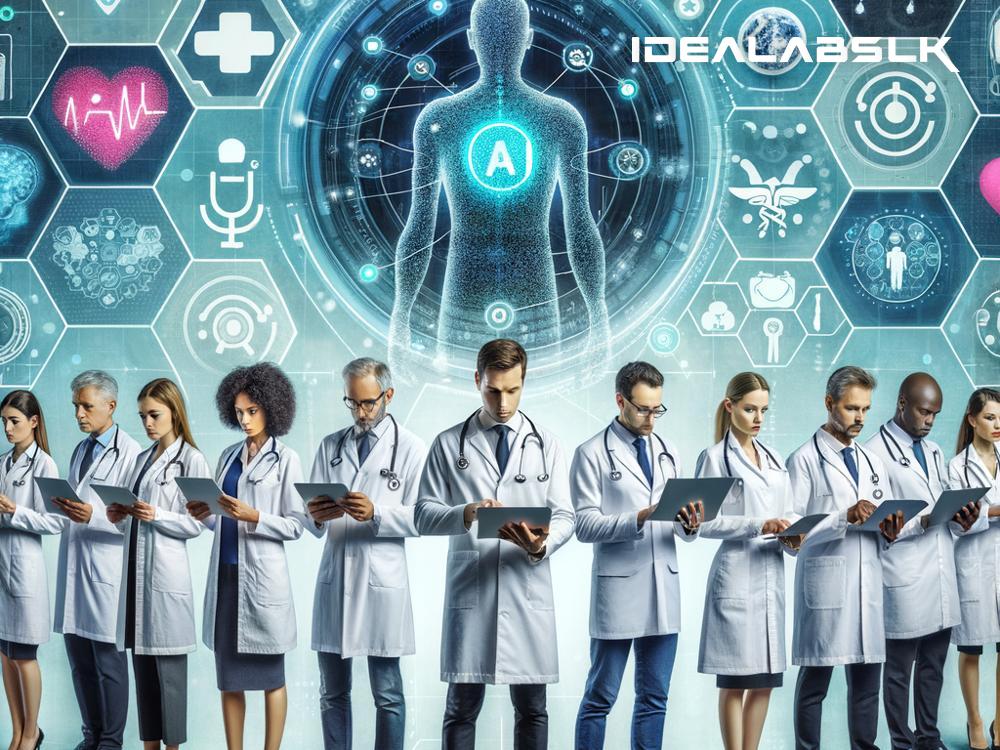How Artificial Intelligence is Changing the Game in Early Diagnosis in Healthcare
In a world that's constantly evolving, the healthcare industry isn't left behind, especially with the dawn of artificial intelligence (AI). A term that sounds like something out of a sci-fi movie is now a significant game-changer in diagnosing diseases early on. But what exactly is this buzz all about? How is AI making a monumental difference in early diagnosis, ensuring a healthier tomorrow for everyone? Let's break it down in simple English.
What is Artificial Intelligence?
Imagine having a super smart friend who can process tons of information in the blink of an eye, make sense of patterns you didn't even know existed, and help you make decisions based on those insights. That's AI for you, but on a much grander scale. It's technology that learns over time, getting better with every piece of data it analyzes. In healthcare, this ability can mean the difference between catching a disease early or too late.
Speedy and Accurate Diagnoses
One of the crown jewels of AI in healthcare is its ability to quickly and accurately diagnose diseases. Traditional methods can be time-consuming and sometimes not as precise as we'd like. Enter AI, with its ability to sift through mountains of data from medical records, images, and more, picking out patterns and anomalies at lightning speed. What might take humans hours or even days, AI can achieve in a fraction of the time, often with higher accuracy. This speed and precision mean illnesses like cancer, heart diseases, and neurological disorders can be caught way earlier than before.
Learning from a River of Data
Every patient's case contributes to a vast river of data that AI technologies can learn from. Every diagnosis, treatment outcome, and patient history is a lesson that AI uses to get smarter. This continuous learning process means that the more data AI systems have, the better they become at predicting and diagnosing diseases early. It's like having an ever-evolving encyclopedia of healthcare knowledge at your disposal, one that's getting wiser by the day.
A Closer Look at Imaging
Let's zoom in on imaging – things like X-rays, MRIs, and CT scans. Interpreting these images requires a trained eye, and even then, small details can sometimes be missed. AI, however, has shown remarkable success in analyzing these images with incredible detail. It can spot tiny signs of diseases such as early-stage cancer that might be overlooked by human eyes. By assisting radiologists and other specialists, AI not only increases the chances of early diagnosis but also significantly reduces the workload on overburdened healthcare professionals.
Personalized Medicine: The Future of Healthcare
AI doesn't stop at diagnosis; it's also paving the way for personalized medicine. By understanding the genetic makeup of an individual and how they might react to different treatments, AI can help customize healthcare solutions tailored to each person. This level of personalization could radically improve how diseases are prevented, detected, and treated, focusing on the unique needs of each patient.
Challenges and Considerations
It's not all smooth sailing, though. With the integration of AI in healthcare comes the need for robust data privacy measures, addressing ethical concerns, and ensuring the technology remains accessible to all, not just those who can afford it. Moreover, the reliance on AI should never overshadow the importance of human touch and intuition in medicine. It's about striking a balance, combining the best of technology with the irreplaceable value of human empathy and understanding.
Looking Ahead
The integration of AI in early diagnosis is like opening a new chapter in healthcare, one filled with possibilities. We're already witnessing how it's transforming the industry, making diagnoses quicker, more accurate, and personalized. But we're just scratching the surface. As technology advances and we become better at leveraging it, the future of healthcare looks promising, with AI by our side.
Through early diagnosis, AI has the potential to save lives, reduce healthcare costs, and ensure a healthier future for generations to come. It's a testament to human ingenuity, showing how technology, when used wisely, can be a powerful ally in our quest for better health. The marriage between technology and healthcare is indeed a hopeful glimpse into a future where diseases are no longer the daunting specters they once were, thanks to the remarkable capabilities of artificial intelligence.

